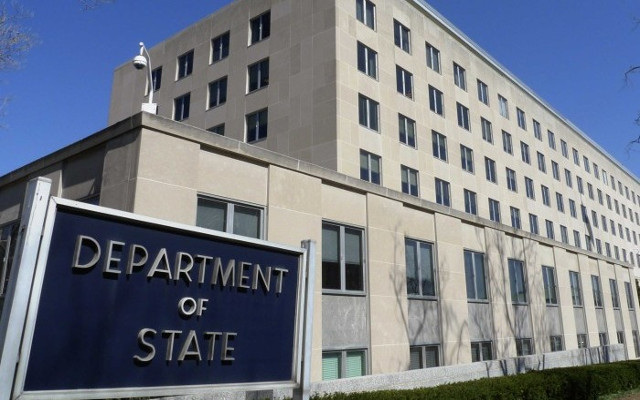Americans for Democracy & Human Rights in Bahrain (ADHRB) welcomes the US State Department’s recent release of the 2015 International Religious Freedom Report. The report, conducted annually, outlines the status of religious freedoms in countries around the world and documents government policies that violate the beliefs and practices of various religious groups.
The 2015 International Religious Freedom Report highlights the Government of Bahrain’s discriminatory practices against the country’s majority Shia community. The report highlights the Bahraini government’s harassment, arrest, and detainment of Shia clerics, community members, and opposition politicians in 2015. The government often charged Shia clerics with inciting hatred, defaming other religions, and using political speech in religious sermons. In June 2015, Bahraini courts sentenced the now-dissolved Al-Wefaq Islamic Society’s Secretary-General Sheikh Ali Salman to four years in prison for charges of “inciting hatred and promoting disobedience to the law” during a speech he gave in 2014. Bahraini courts have since increased Sheikh Ali Salman’s sentence from four years to nine years on appeal.
In addition to the harassment of Shia clerics and community leaders, the report notes the Government of Bahrain’s discriminatory practices in hiring Shia citizens for government positions. Bahraini government officials continued to recruit Sunni individuals from foreign countries in favor over Shia Bahraini citizens for employment in the security forces. Many estimates state that more than half of Bahrain’s security forces may be comprised of Sunni individuals from Pakistan, Jordan, and Yemen, who the government then grant Bahraini citizenship. The Shura Council, the royally-appointed upper house of parliament, is comprised of a Sunni majority despite the country’s Shia-majority demographics. Additionally, Shia teachers remained unemployed, despite a shortage of teachers for public schools. The Bahraini government brought in foreign-born Sunni teachers to fill vacant teaching posts.
“We welcome the State Department’s latest report on religious freedom, as it highlights the ongoing discrimination against Bahrain’s Shia population,” said ADHRB Executive Director Husain Abdulla. “Ending religious discrimination in Bahrain requires serious action from the Bahraini government. Recent events in Bahrain, including the summoning and detention of several Shia clerics, highlight the importance of the International Religious Freedom Report.”
The State Department’s 2015 religious freedom report comes in the wake of heightened religious discrimination this year in Bahrain. On 20 June 2016, the Bahraini government revoked the citizenship of the country’s most prominent Shia religious leader, Sheikh Isa Qassim. This prompted a mass sit-in around Sheikh Isa’s home in Duraz. Since June 2016, Bahrain has summoned almost 50 Shia clerics for questioning. Shia clerics have been targeted for participating in the Duraz sit-in, giving sermons, or taking part in the practice of khoms, a Shia-specific tradition that involves the fundraising and distribution of money for the community. A number of these summons have resulted in arrests.
While ADHRB welcomes the release of this report, and the recognition of the abuses of 2015, we continue to call on the US Department of State to increasingly call public attention and diplomatic pressure towards countering the escalating human rights and political crisis in Bahrain, particularly targeting the Shia community along sectarian lines.
The Government of Bahrain must cease its ongoing discrimination of the Shia community in Bahrain. As a party to the International Covenant on Civil and Political Rights (ICCPR), the Bahraini government has a duty to guarantee its citizens of all backgrounds the freedoms to practice their religious beliefs without fear of harassment or discrimination. As a champion of international religious freedom, and as one of Bahrain’s closest allies, the United States has a critical role to play in pressing the Bahraini government to ensure that all Bahrainis may fully express their right to freedom of religion.
For a PDF of this statement, please see here.





